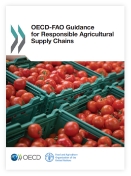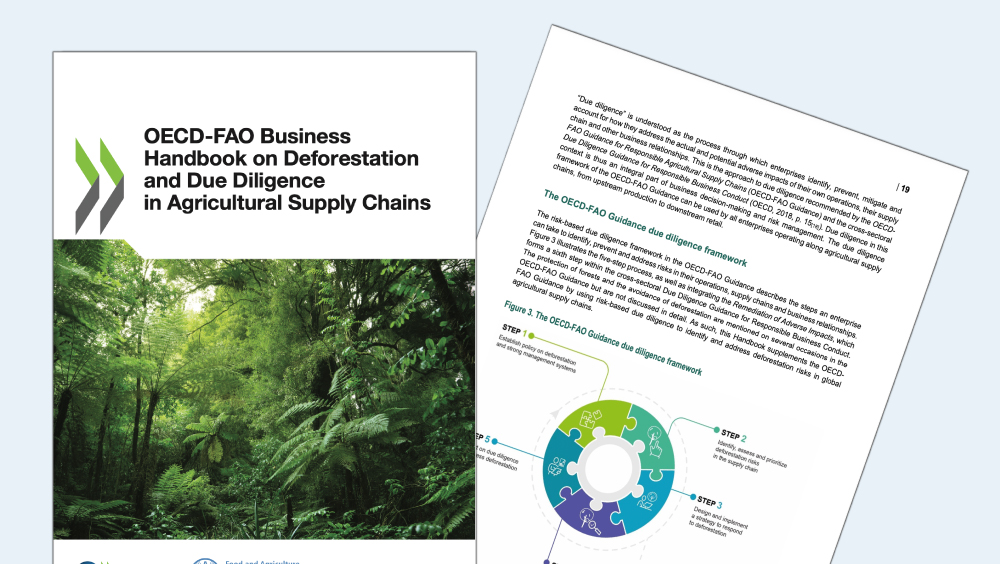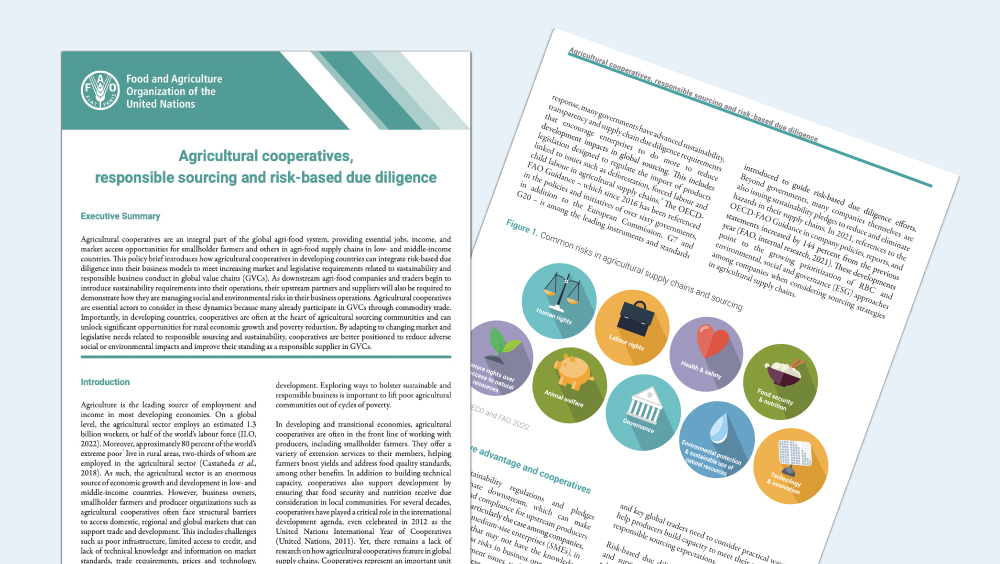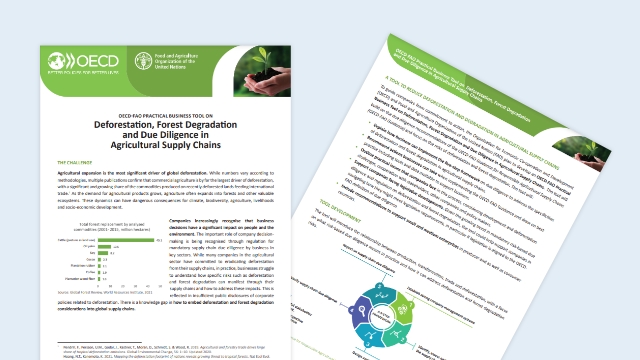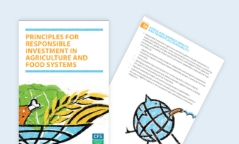Connecting risk and development through responsible agricultural supply chains
FAO’s activities on RBC build on various resources including the OECD-FAO Guidance for Responsible Agricultural Supply Chains, the global standard for addressing risk and development in the agricultural sector. The OECD-FAO Guidance was launched in 2016, designed jointly by FAO and the Organisation for Economic Co-operation and Development (OECD) following a three-year process guided by a multi-stakeholder advisory group. Several governments around the world have since recognized the OECD-FAO Guidance as part of their policy frameworks linking investment, enterprise, agriculture and development. For example, Switzerland, Japan, France and the United Kingdom are some of the FAO Members that integrate the OECD-FAO Guidance as part of their RBC policies, programmes and reference tools for due diligence in the agricultural sector. In February 2022, the European Commission adopted the proposal for a Directive on Corporate Sustainability Due Diligence, which requires certain companies in all 27 European Union Member States to conduct environmental and social due diligence. The Directive lists agriculture as a high-impact sector, with reference to the OECD-FAO Guidance as the sector due diligence standard.
The OECD-FAO Guidance outlines how companies can better manage risks and development outcomes in their supply chains by establishing due diligence systems and encouraging multi-stakeholder cooperation. Sourcing responsibly involves a focused approach to tackling business and human rights, climate change and the environment - understanding how impacts can occur along supply and value chains. The OECD-FAO Guidance illustrates how such challenges can be pronounced in developing economies and interlink with structural development challenges. Key topic areas include labour rights, animal welfare, land tenure rights, environmental protection and natural resource depletion (including water scarcity and deforestation), food security, child labour, indigenous rights, among many other risk and development issues.
Publication available in:
Arabic | Chinese | English | French | German | Idonesian | Japanese | Myanmar | Polish | Portuguese | Russian | Spanish | Ukrainian | Vietnamese
Why Responsible Business Conduct (RBC) in Agriculture?
Increasingly, companies recognize that they have a responsibility and role in sustainable development. From large agricultural multinational enterprises to upstream and downstream suppliers, such as traders, cooperatives, farmers, retailers and others, adverse impacts from business can have lasting effects on people in different commodity sourcing communities around the world. Integrating considerations that address poverty and labour standards, while ensuring that trade is inclusive of all types of businesses and countries, including small-scale farmers in least developed countries, requires concerted effort from many actors. By focusing on RBC in their value chains – and factoring in social and environmental considerations in their business models – enterprises can drive positive development and make a focused contribution to the Sustainable Development Goals (SDGs), while lowering impacts on their own financial bottom lines.
Did you know?
FAO’s role in Responsible Business Conduct (RBC)
FAO plays a leading role in the global dialogue on responsible business conduct (RBC), developing initiatives, strategies and tools to help foster inclusive development for governments while working interactively with business, NGOs and others. FAO collaborates with various partners in addressing RBC in agriculture, including the OECD Centre for Responsible Business Conduct through the OECD-FAO Guidance and a joint communication and implementation workplan. At FAO, our work drives several streams that feed into RBC from different thematic perspectives according to the extensive risk and development base of issues governing agricultural enterprises and development. Our work on RBC reflects the main principles of FAO’s Private Sector Strategy and is part of the CFS-RAI Umbrella Programme Supporting Responsible Investments in Agriculture and Food Systems. It is interlinked with the major work streams of FAO including:
- Land Tenure and Voluntary Guidelines on the Responsible Governance of Tenure of Land, Fisheries, Forests in the Context of National Food Security
- Hunger and Food Insecurity
- Trade and FAO’s workstream on cooperation with the Private Sector
- Global agricultural supply chains, deforestation and responsible sourcing

